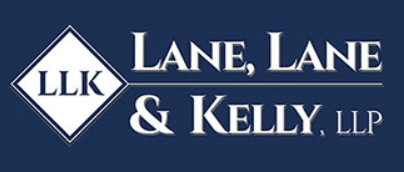A Declaration of Homestead is a great way to protect your primary residence from collection, seizure, or a creditor’s lien. Massachusetts law provides an automatic homestead protection for a person’s primary residence up to One Hundred Twenty-Five Thousand ($125,000.00) Dollars. This means that a homeowner does not need to do anything to get this level of protection. However, homeowners may increase their protection to One Million ($1,000,000) Dollars (which was recently increased from $500,000 as a part of Governor Maura Healey's Affordable Homes Act), if they file a Declaration of Homestead with the appropriate Registry of Deeds. This protection extends to a spouse and any family members living in the home. If an unmarried individual ends up getting married, the protection will also extend to the new spouse. You must have a Declaration of Homestead in order to gain the increased protection of One Million ($1,000,000) Dollars.
Homestead Declarations for the Elderly or Disabled
There are special protections for property owned by individuals who are at least sixty-two (62) years old or disabled. Elderly or disabled persons homestead declarations protect a qualifying individual’s home, regardless of marital status, up to One Million ($1,000,000) Dollars. If there are two qualifying individuals in the home, they each can declare an elderly or disability homestead declaration and receive an aggregate protection value of up to Two Million ($2,000,000) Dollars. This type of homestead expires upon the individual’s death and does not continue to cover the family after that, so it is important for other family members to understand their options in that regard.
Homestead Declarations on Properties in Trusts
If your home is owned in trust, a person having a beneficial interest in trust is considered an “owner,” eligible for a homestead declaration. In this scenario the trustee shall execute a Declaration of Homestead on behalf of the trust’s beneficiaries. The trust declaration and/or trustee certificate may also need to be recorded at the Registry of Deeds. In the Declaration of Homestead, the trustee must identify each of the beneficiaries to the trust that occupy or intend to occupy the premises as their primary residence. The spouse, if any, of any resident beneficiary must also be identified and each must state whether they also occupy or intend to occupy the premises as their primary residence.
What Does the Homestead Act Not Cover?
A Declaration of Homestead does not protect a homeowner against federal, state, and local taxes, assessments, claims and liens; first and second mortgages; any and all debts, encumbrances or contracts existing prior to the filing of the Declaration of Homestead; spousal or child support; or where buildings on land not owned by the owner of a homestead estate are attached, levied upon or sold for the ground rent of the lot whereon they stand.
For more detail surrounding how a Declaration of Homestead fits into the closing process, please read our full buyer's guide to navigating the purchase and sale agreement in your real estate transactions.
For many reasons, it may not be wise to rely solely on the protections provided by the Homestead Act. Our attorneys are experienced in additional asset protection, and estate planning. Contact an attorney at Lane, Lane, and Kelly to discuss your individual circumstances and ways to protect your home.
Call 781-848-0040 or fill out our contact us form to schedule a free consult.
This blog is made available for educational purposes only as well as to give you general information and a general understanding of the law, not to provide specific legal advice. By reading this blog you understand that there is no attorney client relationship between you and Lane, Lane & Kelly, LLP.

Robert F. Cirafice
Bob is an Associate Attorney at Lane, Lane & Kelly, LLP. Bob attended the University of Massachusetts at Amherst, prior to obtaining his law degree from New England Law in 2017. Following law school, Bob worked for one of the largest personal injury firms in Massachusetts, successfully representing injured workers in all phases of litigation before the Department of Industrial Accidents. In 2020, Bob joined a large Real Estate Firm, and conducted hundreds of real estate closings. Bob primarily practices Commercial and Residential Real Estate, and Workers Compensation Law.


